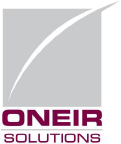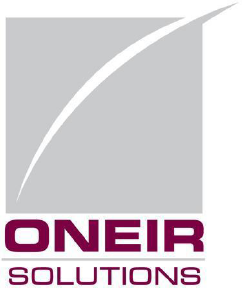In response to questions from our customers Technical Support Advisors, I asked our VMware consultant to bring me up to date with their offerings. Here are his findings and comments….
The three current recommended choices from VMware (along with the URL’s as of this writing) for running Oneir Solutions in a virtual machine partition are:
1) VMware Workstation – Latest version is VMware Workstation 11
http://www.vmware.com/products/workstation/
VMWare Workstation is a hypervisor software package that requires an existing Windows or Linux host O/S to run it which adds overhead to running a virtual machine of any type. This option has a nominal $249 license fee. There is also a cost associated with the hosted server operating system.
This option is more suitable to run as a desktop-based solution (or as a proof of concept for a virtualized environment before using vSphere) rather than a server-based solution like vSphere. VMware classifies Workstation as a desktop-based solution on their product portfolio offerings, as such for high demand applications, options 2 and 3 are recommended.
Of note, techs who have installed VMware Workstation have noted that it is relatively easy to install and configure.
2) vSphere Hypervisor Free Edition (ESXi):
http://www.vmware.com/products/vsphere-hypervisor/
3) VMWare vSphere Essentials Kit (Would need to scroll close to the bottom of the screen):
http://www.vmware.com/products/vsphere/compare.html
For either of the above options, a system builder will need to ensure that they build a server capable of support the VMware vSphere product by visiting VMware’s Hardware Compatibility Guide at http://www.vmware.com/resources/compatibility/search.php
Options 2 or 3 (vSphere) and vSphere/ESXi are bare-bone operating systems in themselves and make use of a minimal underlying O/S footprint and overhead to ensure that virtual machines run in an optimal state. Note that vSphere ESXi (Option 2) requires a server class machine to run it. This server class hardware is typically better engineered from a hardware, durability and reliability perspective.
Investing in a name brand server hardware also provides the added benefit of providing hardware support coverage from the name brand vendor (HP, Dell, etc.) should any hardware issues crop up (if a customer so chooses to pay for extended hardware support coverage). Server class hardware has been designed with higher mean time between failures for their underlying components and, as such are better suited to run 24/7.
Regardless of the VMware product selected, it is always assumed that robust hardware is used for the server with heavy duty components.
Note that Oneir Solutions has been optimized for all three options of VMware from an installation perspective as well as an operational view. With this feature in mind, Oneir will provide a disk containing the Linux operating system, the Oneir Solutions software, the company structure and a READ ME document for the installation. All that needs to be added are the data files, the printer scripting, the users with their preferences and the Telnet sessions on each workstation.
While there are pros and cons with each option, in my experience it comes down to the technical background of the on-site hardware / network support personnel which option has been chosen in the past. The bottom line is that Oneir Solutions works well on all three and allows easy, secure access from remote locations on either option as well as providing the speed and security of the Oneir Linux server.
With regards to remote access, it is as simple as providing a Telnet session from the Windows (64 bit or 32 bit) workstation through the secure firewall.
I trust this information narrows your options.
Note as well that Oneir Solutions has been automated for VMware and no consideration has been giver for other virtual machine competitors.
Also note that there is a considerable amount of technical documentation on www.vmware.com as well as on the URL’s. (The above URLs are subject to change at anytime from VMWare but are valid as of this writing) Note as well that the Oneir Solutions requirement for the server hardware is similar to the current RAM and disk storage requirements for running VMware ESXi and Workstation; however, with in the Oneir server set up of VMware, 1 GB RAM is the default allocation and 60 GB of hard drive space.


